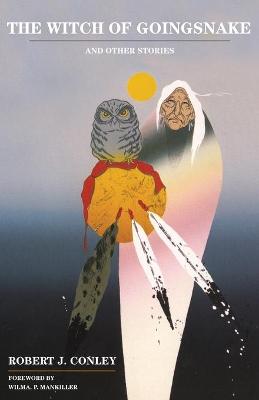Based on Cherokee history, oral storytelling, and personal experience, these stories, taken as a whole, reflect the depth of Cherokee historical experience and the range of contemporary Cherokee life. Several stories, including the one from which the collection takes its name, deal with the spiritual world. In the title story a man and his family are devastated by the evil powers of a tsigli, a witch. In other stories ""medicine"" is used to more constructive ends. Some of the stories feature human-animal transformations, the ability to become invisible, and the power to manipulate events. In the context of the Cherokee world such stories are not fantasies. They are stories about reality - the reality known to Cherokees.The collection also includes tales of Cherokee ""outlaws,"" one of the most intriguing aspects of Cherokee history to Cherokees and non-Cherokees alike. Set in the days of Indian Territory, before Oklahoma statehood, these stories provide a taste of the wild West, seasoned with Cherokee cultural experience.
Still other stories describe modern-day Cherokees confronting the past and the present and continually struggling to find a place in the white people's world while maintaining a Cherokee belief system and way of life. Some Cherokees confront ignorant whites, others confront ignorant Cherokees, and still others simply make their own way, dealing with each other, with outsiders, with their environment, and with their spirituality in uniquely personal, albeit Cherokee, ways.
Clearly, these stories differ from stories that grow out of a European tradition, for behind them lie completely different cultural referents; different notions about interpreting events, time, and language; and a different view of the purpose and art of storytelling. Their author speaks with a clear Cherokee Indian voice to show how these cultural characteristics have survived centuries of abrupt change and to give readers an understanding of the fullness and humanity of the Cherokees as a people.
As Wilma P. Mankiller, Principal Chief of the Cherokee Nation, says in her foreword to the stories: ""Much has been written about the Cherokee people. Not enough has been written by the Cherokee people. The subtle nuances of language, the memories of tribal life, and the strong sense of the past and its integration with the present are lost even to the most gifted non-Cherokee writer. There is a movement among contemporary Cherokee writers to produce more indigenous literature. Robert Conley is a leader of that movement.""
- ISBN13 9780806123530
- Publish Date 30 March 1991
- Publish Status Active
- Publish Country US
- Imprint University of Oklahoma Press
- Format Paperback
- Pages 182
- Language English
